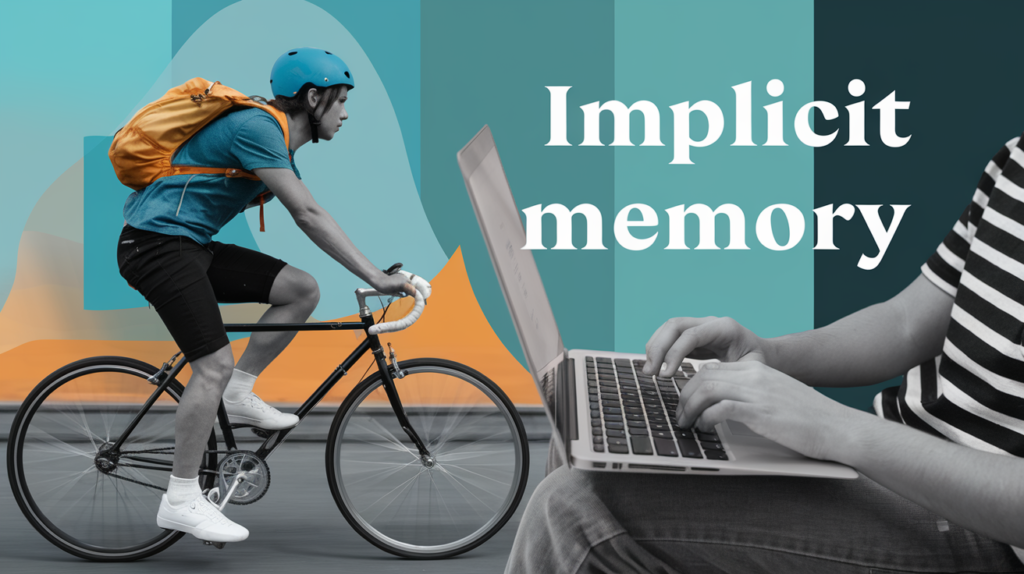What is Implicit Memory?
Implicit memory is a type of long-term memory that operates unconsciously, enabling us to perform tasks and retain skills without actively thinking about them. Unlike explicit memory, which involves recalling facts or events, implicit memory is automatic and often related to procedural tasks like riding a bike or typing. It underpins many of our daily activities and influences behaviors without our awareness.
The Benefits
- Effortless Skill Execution: Implicit memory allows us to perform routine tasks efficiently, freeing up cognitive resources for other challenges.
- Adaptability: It supports habit formation, making it easier to adjust to new environments or routines over time.
- Emotional Regulation: Implicit emotional memories can help us navigate social situations by subconsciously guiding our responses based on past experiences.
- Enhanced Learning: Activities like learning a musical instrument or developing athletic skills rely heavily on implicit memory, allowing for fluid and intuitive performance.
- Supports Cognitive Health: Strengthening and contributes to overall brain resilience, which may help delay cognitive decline.
How to Strengthen It
- Repetition and Practice:
- Engage in activities like playing an instrument, dancing, or practicing a sport. Repeating tasks helps encode procedural memory.
- Use spaced repetition for learning skills, which strengthens retention over time.
- Mindfulness and Consistency:
- Regularly practice habits or routines to create strong neural pathways. For example, maintaining consistent bedtime rituals can improve implicit sleep habits.
- Gamification:
- Memory games like puzzles, word association challenges, and implicit pattern recognition games can subtly train your brain.
- Physical Activity:
- Exercise, particularly aerobic activities, enhances neurogenesis and brain plasticity, which are essential for memory encoding.
- Creative Learning:
- Incorporate arts and crafts, such as drawing or playing musical instruments, to engage implicit learning pathways.
- Exposure Therapy for Emotional Implicit Memory:
- If negative implicit memories are affecting you, gradual exposure to the triggering situations in safe environments can help recondition these memories positively.
- Meditation and Relaxation:
- Meditation enhances neural connectivity and can improve unconscious memory processing.
- Balanced Diet and Sleep:
- Nutrients like omega-3 fatty acids and antioxidants support brain health, while quality sleep is crucial for memory consolidation.
Conclusion
Implicit memory is a cornerstone of our daily functioning, shaping habits, behaviors, and skills seamlessly. By understanding its benefits and employing strategies to strengthen it, you can enhance your cognitive abilities and improve your quality of life. Start small by incorporating repetitive practice and mindful routines, and watch as your unconscious mind becomes an even more powerful ally in navigating life’s challenges.
